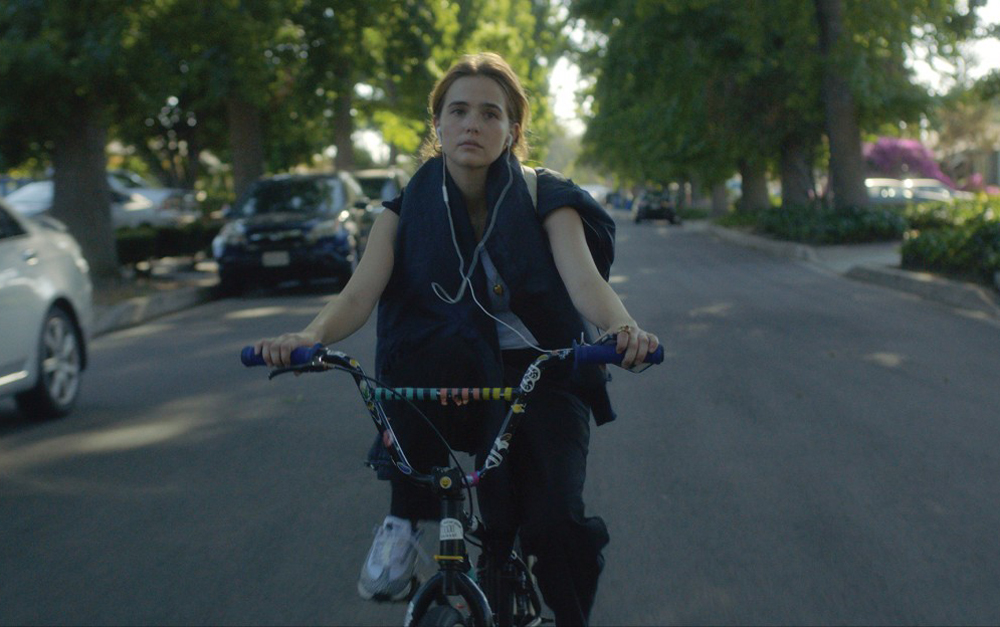In just two films, it’s obvious there’s an ease with which Max Winkler brings you into one of his films, not to be confused with the process it likely took to get there, that’s diametrically opposed to what’s happening in the frame. His first “Ceremony” was presented as if it were the wedding cake that was central to its plot, frosted with bright pastels that still were slightly less colorful than the language used as a young man (Michael Angarano) tried to win over the bride-to-be (Uma Thurman) on the day of her nuptials in a film that was anything but sweet. There’s a laid-back vibe emanating from the lazy, hazy sun-soaked Southern California he sets his second “Flower” in, with musical choices as cool to the touch as the perfect weather the area is known for, yet there’s a frenzy that exists inside both Erica (Zoey Deutch) and Luke (Joey Morgan), two teens brought together by their recently engaged parents (Kathryn Hahn and Tim Heidecker) who gradually find in each other what they believe is missing in themselves, long having to sow chaos in its place.
This is more overt in the case of Erica, a force of nature who could be considered “woke” by internet standards, branding herself a feminist in equating her freedom to give oral sex to any guy she likes without considering herself a slut as sexual liberation and throwing out cultural catchphrases such as “eating your feelings” as an expert diagnosis for a personal or societal ill. However, she comes to realize these things have no currency in the physical world in being confronted by Luke, who keeps his thoughts largely to himself, being self-conscious about his considerable weight. Forced by her mother to be nice to him, Erica finds a start to a conversation in their shared alienation – hers because her father’s in prison after a casino robbery, and his being a result of having once accused a teacher (Adam Scott) at his old school of molesting him and having no one back him up, leading him to transfer. When Erica hears of this, she feels a wrong that needs be put right – against Luke’s initial protests, she assures him of a plan to track the teacher down, saying, “I know what goes on in this town behind closed doors,” preparing to open one she couldn’t possibly know where it will lead, but you suspect nowhere good.
Your mileage may vary once Erica’s ideas become a criminal concern, but “Flower” is inarguably strong stuff and Winkler, working from a punchy script he wrote with Matt Spicer and Alex McAuley, may divide audiences, but impresses with his ability to unite disparate tones between the slick surface of things and what’s stirring just beneath both stylistically and thematically, keeping his eye on two very specific characters in Luke and Erica while speaking to bigger ideas about the faces we put on for the world at large while private turmoil persists. Deutch, who can’t help but make a troublesome person utterly winning, holds the film together brilliantly, and watching her discover the right wavelength with her co-star Morgan and by extension, his character Luke, is one of “Flower”‘s best parts. But eventually the film’s aesthetic and substantive beauty collide, at which point “Flower” becomes more than the sum of its parts, much like its main characters find in each other’s company.
“Flower” does not yet have U.S. distribution. It will play at the Tribeca Film Festival on April 22nd at the Regal Cinemas Battery Park at 9 pm, April 23rd at the Cinepolis Chelsea at 6:30 pm and April 24th at the Regal Cinemas Battery Park at 5:30 pm.





Comments 1